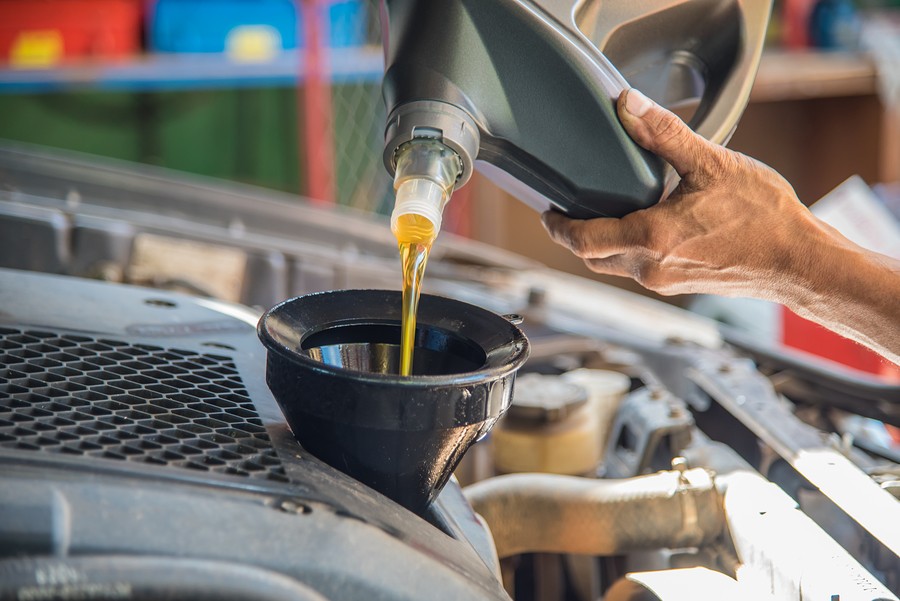If you're wondering how much oil does my car needs, you'll likely need between five and six quarts. This will depend on your engine size and type.
An oil change is one of the most critical services that you must implement for your vehicle. It doesn't only maintain your vehicle condition, but also it prevents significant problems in the future.
Changing your vehicle's oil is not a complicated job, and many people prefer to do it themselves instead of going to a dealership or paying unnecessary labor cost. However, there are a lot of details that you need to understand and familiarize yourself with before moving forward with changing your own vehicle oil.
One of the very common questions that you'll need to ask yourself is, “how much oil does my car need?” That will help you avoid overfilling your vehicle with oil or using less than what's required by your vehicle's owner's manual.
This article walks you through all the details you need to know about how much oil does your car need, and it also highlights some of the basic ideas you need to keep in mind as you're changing your vehicle's oil.
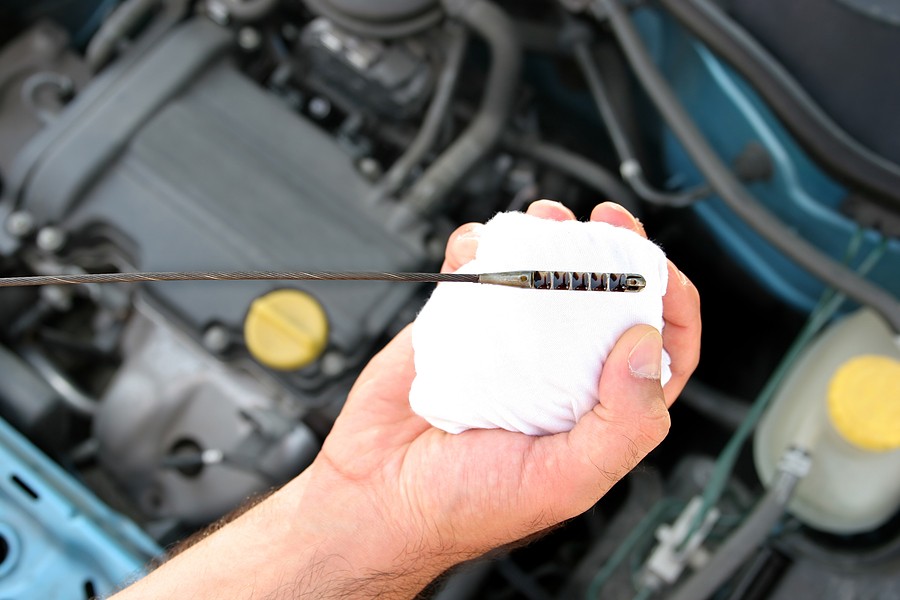
Why doesn't my car need oil?
Before we dive into the details about answering the question, how much oil does my car need, you must understand why your car needs oil and why you must replace it if it's there.
Your engine contains many moving metal components, generating a lot of friction as they interact with each other. A lot of friction leads to engine overheating, which is a significant problem you don't want to happen.
When you put motor oil, you ensure these metal components are continuously lubricated, preventing friction that leads to extra heat. However, this oil is not designed to last forever, and you'll have to change it when it gets dirty.
In other words, when you're driving a vehicle with the required amount of oil, but this oil is not clean, the oil will not do the job, and your engine will still overheat.
That's why you must change the motor oil between now and then and depending on what is specified in your vehicle owner's manual.
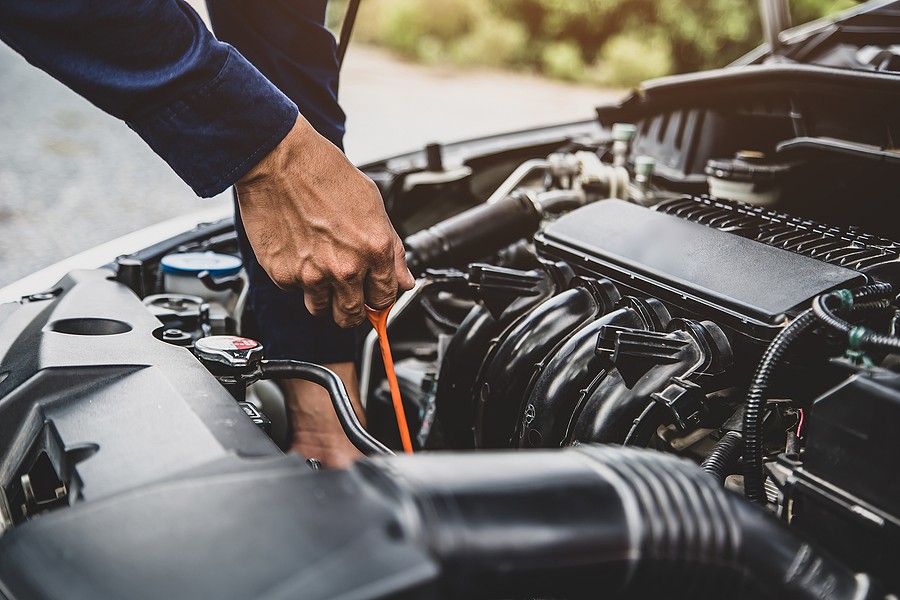
How much oil does my car need?
If you're planning to change your motor oil, you need to know how much oil your car needs. Typically, automotive experts indicate that your vehicle will need somewhere between five and six quarts of oil. However, this amount will differ significantly depending on your engine shape, size, and vehicle type.
For example, some engines are a little bit larger and might require up to 8 quarts of oil. In that case, the easiest way to confirm is through your vehicle's owner's manual.
If you're uncomfortable reading through the manual, you can search online for the oil needed by vehicle name and brand. Many people have the same vehicle out there, and you should find detailed recommendations about how much oil your car needs.
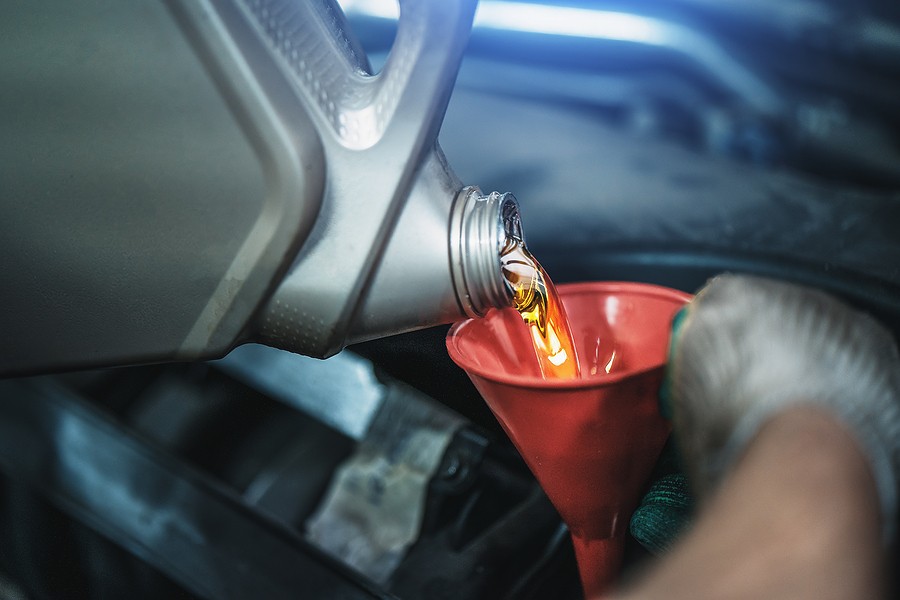
How many liters of oil does my car need?
Some people might not be familiar with using quartz when changing their motor oil. That's why we get a similar question of how many liters of oil the vehicle needs.
Smaller vehicles might require between three and seven liters of oil. However, if you have a dry oil sump vehicle, you might need somewhere between 10 and 12 liters for that car.
Are 2 liters of oil too much?
It's hard to tell. In other words, the amount of oil you need to use in your engine depends on your vehicle type, and as we mentioned earlier, you'll need somewhere between three and seven liters of oil to fill your oil tank.
This, however, does not mean that 2 liters of oil will be too much or too little. In other words, if you're only topping off the vehicle oil, then two liters could be too much, but if you're changing the motor oil, then 2 liters Are not enough.

What if I added too much oil to my car?
You must be precise when adding oil to your vehicle. First, of course, you want to ensure that you have enough oil in your vehicle reservoir, but if you add too much oil, this can also lead to severe problems, and it can be even worse than driving a vehicle with a lower oil level.
Let's take a closer look at what could go wrong if you put too much oil in your vehicle:
1. Insufficient engine lubrication
It might sound strange that your engine will receive less lubrication when you put in too much oil! However, that's true. When you add a lot of oil, the crankshaft on the top of the oil pan will whip off the oil, causing it to look more like whipped cream, like when you whisk egg whites.
Therefore, instead of your engine enjoying the extra oil, less oil will approach the far components, and engine overheating will result in negative consequences.
2. Seals and gasket damages
When you put a lot of oil inside the tangent, and as the crankshaft starts whooping it, the seals and the different gaskets will not like the situation. Therefore, dealing with damage in these seals and gaskets is not rare.
Although the seals and gaskets are minor components in your engine, once broken or damaged, they can't allow the hot mixture inside the cylinders to leave and cause additional problems around the engine compartment.
3. Spark plug fouling
Another potential negative consequence of adding too much oil is spark plug fouling. Spark plugs are not designed to get in touch with oil, and there is a lot of oil inside the engine; the spark plug can get soaked with oil, impacting their performance.
When the spark plug is coated with oil, it will not be able to generate the required spark and ignite the air-fuel mixture. As a result, your overall engine performance will be impacted.
For example, you'll notice that your engine is running rougher than before; the engine will experience misfiring and other problems, including issues with the overall fuel economy.
4. Catalytic converter clogging
Another potential problem that could impact your vehicle when you have a lot of oil is a clogged catalytic converter. The catalytic converter is responsible for treating the gases leaving the engine and converting them into less harmful gases.
When the catalytic converter receives extra oil instead of these gases, it will get soaked with oil, and the performance will be impacted. More specifically, the catalytic converter will get clogged, resulting in issues and how your engine breathes.
A clogged catalytic converter is never fun because it leads to other damages in the entire engine and might prevent your vehicle from passing the emission test.
5. Too much oil pressure
Another potential conflict when adding too much oil is increased oil pressure. The vehicle is expected to receive a specific amount of oil, and as you put in more, this results in additional pressure that the engine is not designed to handle.
With the extra pressure, the weak seals can get broken, and other damages can impact the components surrounding the engine compartment.
6. Crankshaft friction
The crankshaft is unlike the situation where you have a lot of oil. Therefore, crankshaft to friction and other problems can happen because of the extra oil.
That's why it's critical for you as a driver to understand how much oil your car needs before adding this oil. Also, you need to understand whether you're asking the question to change the entire oil in your vehicle or to add and top it off.
7. Engine damages
Finally, once your vehicle has dealt with all the mentioned problems previously, and if you don't pay attention to the issues, you could easily deal with engine damage. Engine damage is a severe issue and means significant money for fixing the vehicle if it's repairable.
That's why before you pour the entire amount of oil inside your engine, it's important that you do it at stages and every time checks the oil level. Then, look at the dipstick and confirm that the oil's not exceeding the desired amount.
If you feel that you added too much oil, then you should; that's not the end of the world because you can use certain simple tools to suck out the extra oil and have your vehicle only handle the specific amount of oil it needs.
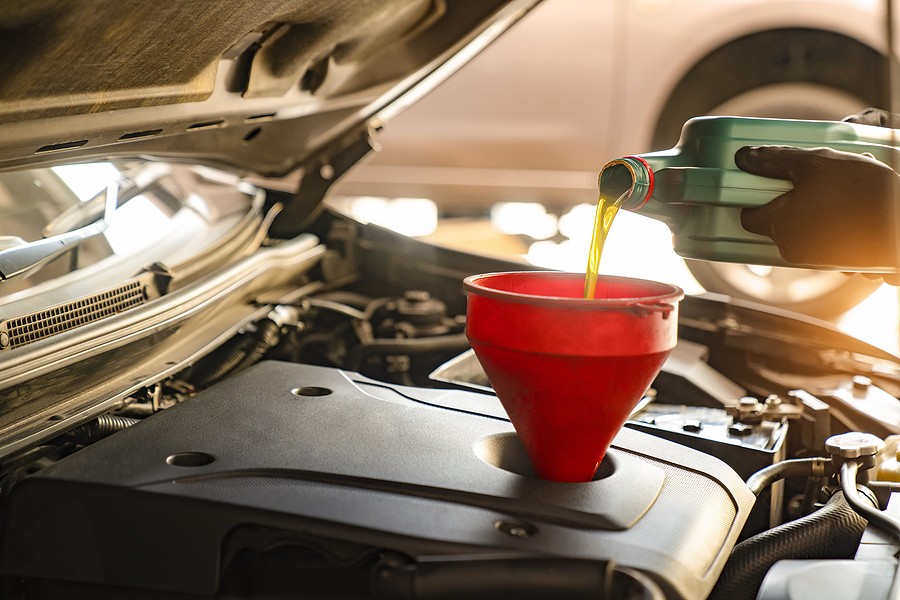
How do I know if I added too much oil?
Sometimes it can be unclear for you as a driver to know whether you added a lot of oil or not. Therefore, understanding the main symptoms of excess engine oil is extremely important.
Let's take a closer look at some of these symptoms indicating that you've added too much oil to your engine:
1. You've recently changed your vehicle's oil
One of the easiest things to help you monitor the oil situation and prevent adding too much oil is to check the oil level yourself after performing an oil change. For example, if you did an oil change last week, take some time to use the dipstick and compare the oil level to the maximum required limits.
2. Strange smoke out of the tailpipe
If you feel weird blue smoke coming out of the tailpipe, it indicates that there is oil burnt inside the engine cylinder. In that case, it could be access oil, but it could also be another problem related to surrounding components.
3. Strong burning smell
Also, you can monitor any weird smells as you get inside your vehicle. For example, if you realize that your vehicle is making some burning smell immediately after turning on the engine, it could mean that oil is getting burned inside the cylinders. This is because you've added too much oil than what's needed.
4. Oil leaks
Finally, you can check and look underneath the vehicle to see if there are any puddles of oil dripping underneath the car. Sometimes the problem could be related to adding too much oil, but it also could be linked to a faulty component like a damaged or blown head gasket.
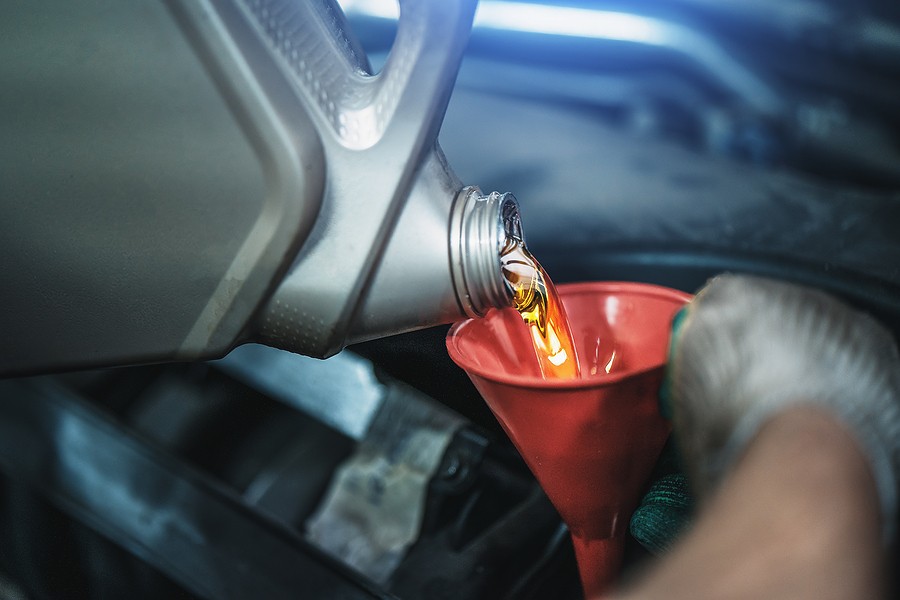
Final thoughts
An oil change is a must. Driving your car with bad oil is never a good idea because it leads to severe damage.
Considering that labor can be a big component in oil change, many people prefer to change their oil, but it's also important to understand how much oil does your car need? This article helped you answer this question and provided the number of oil ranges in both quarts and liters.
You must monitor your vehicle situation, and if you feel that your car is consuming a lot of oil beyond what's mentioned in the vehicle owner's manual, there could be an internal problem that you have to address immediately.
If the problem requires a significant amount of money to get fixed, you might want to sell this vehicle rather than waste your time and effort trying to make it work.
Are you looking for someone to buy your car, considering the oil consumption problem? Cash Cars Buyer it's always here to help you!
Cash Cars Buyer is one of the top-rated car removal companies in the nation that guarantees to pay you the top dollars and provide you with free towing despite your living location around the United States.
Our process is very straightforward and doesn't take more than a couple of days to get your car removed safely and for the most money.
All it takes you is to:
- Describe your car's type and condition
- Receive our instant free quote
- Accept the quote
- Get your car removed and receive your cash payment on the spot!
To learn more about our process and our team, you can reach out to us by calling us at (866) 924-4608 or by visiting our home page click on the free instant online offer.

